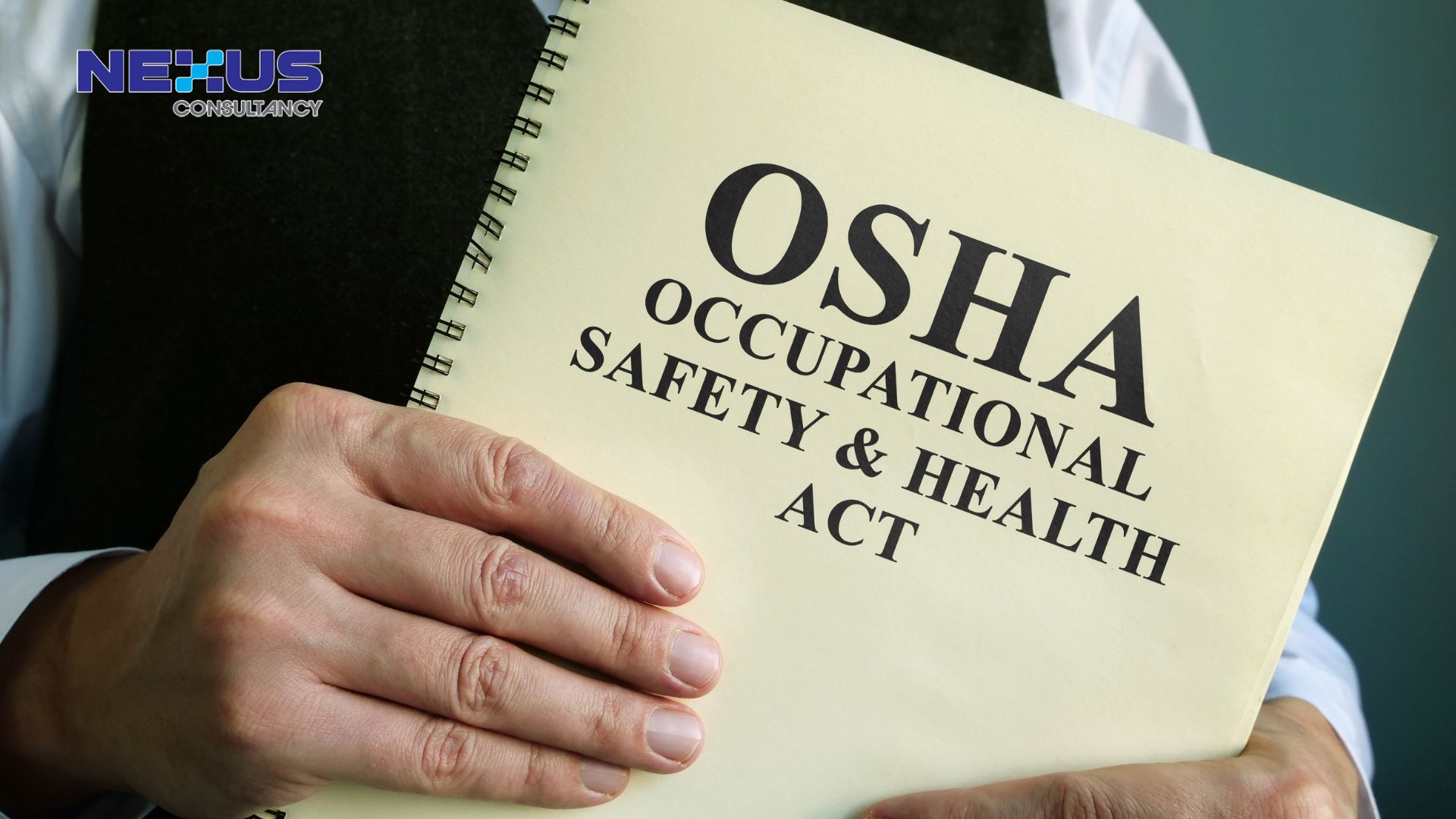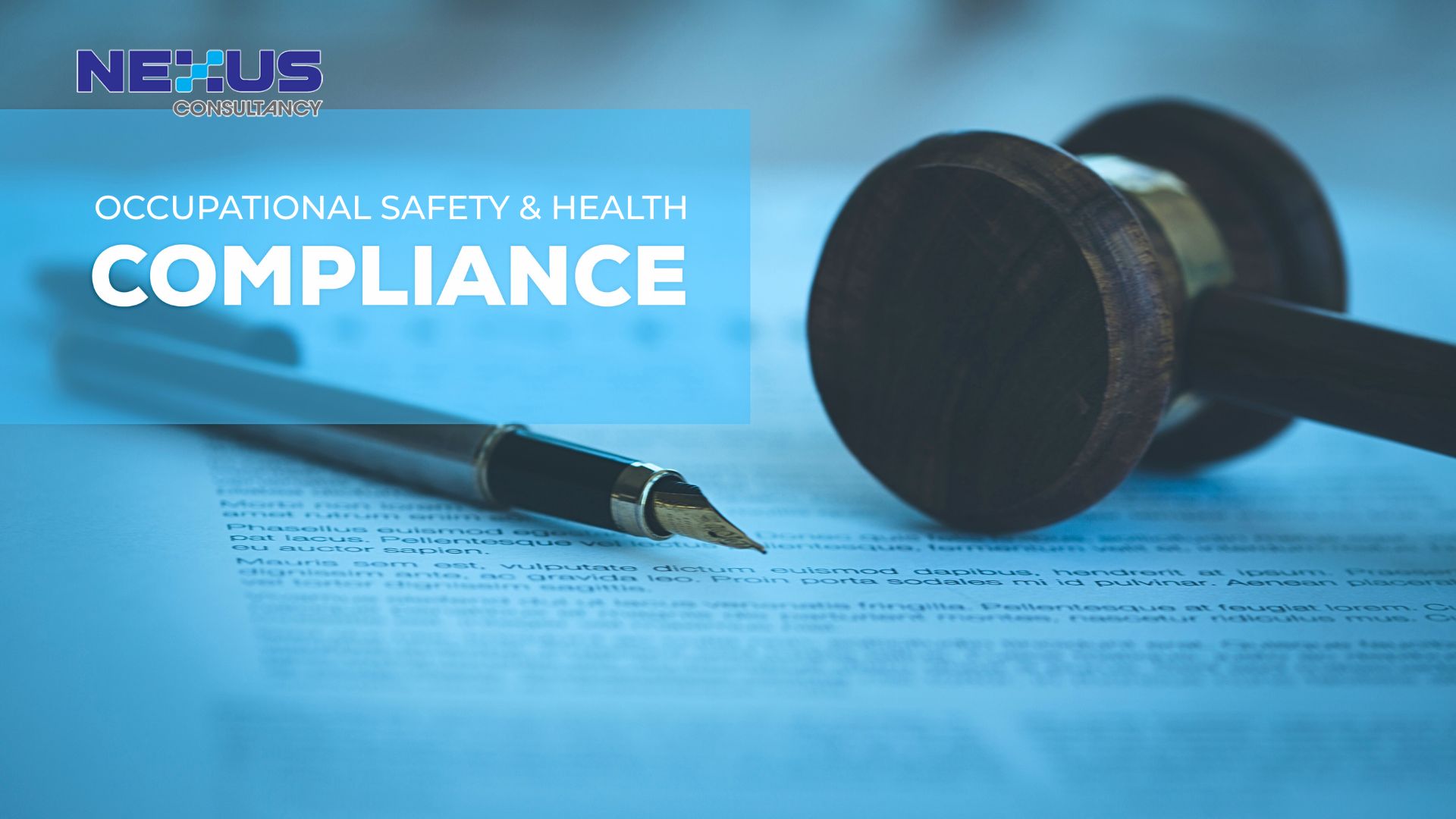
Danielle Tan
Chief Operating Officer
Learn what Malaysia’s OSH Act 1994 requires—and how to stay compliant, avoid penalties, and protect your team.

What is the OSH Act 1994?
The Occupational Safety and Health Act 1994 (Act 514) was enacted by the Malaysian government to ensure that safety, health, and welfare measures are adequately provided in all workplaces. Administered by the Department of Occupational Safety and Health (DOSH) under the Ministry of Human Resources, the Act promotes a proactive approach to managing workplace risks and hazards.
Objective of the OSH Act:
– To secure the safety, health, and welfare of persons at work
– To protect others against risks to safety or health in connection with work activities
– To establish effective workplace safety systems through self-regulation
– To provide the framework for consultation between employers and employees
Who Must Comply?
The OSH Act 1994 applies to all industries except the armed forces and domestic services. This includes:
– Manufacturing
– Construction
– Agriculture and plantations
– Hospitality
– Education and healthcare
– Government and statutory bodies
If you’re an employer, business owner, director, or manager, you have legal responsibilities under this Act.
Key Legal Duties of Employers
As an employer in Malaysia, your responsibilities under the OSH Act 1994 are clearly outlined. Here are some of the most important legal duties:
1. Ensure the Safety, Health, and Welfare of Employees
Employers must take practical steps to:
– Maintain safe systems of work
– Provide safe machinery and equipment
– Ensure the use, handling, storage, and transport of substances are safe
– Provide information, instruction, training, and supervision
– Maintain a safe workplace, including access and exits
2. Form a Safety and Health Committee
Companies with more than 40 employees must establish a Safety and Health Committee to facilitate communication and cooperation on safety matters.
3. Conduct Risk Assessments
Employers must identify workplace hazards, assess associated risks, and implement control measures. Common tools include HIRARC (Hazard Identification, Risk Assessment, and Risk Control).
4. Notify and Report Accidents and Dangerous Occurrences
Under the OSH (Notification of Accident, Dangerous Occurrence, Occupational Poisoning and Occupational Disease) Regulations 2004, employers must report:
– Any workplace accident that causes death or serious injury
– Any occupational disease or poisoning
– Dangerous occurrences, such as equipment failure or fire
Employee Rights Under the OSH Act
The OSH Act also protects employees by giving them the right to:
– Work in an environment free of recognized hazards
– Receive adequate safety training
– Be consulted on safety and health matters
– Refuse unsafe work if there is a reasonable belief of imminent danger
Employers are prohibited from penalizing employees for raising OSH concerns or refusing to perform dangerous tasks.
Penalties for Non-Compliance
With the enactment of the Occupational Safety and Health (Amendment) Act 2022, penalties for non-compliance have been significantly increased to enhance enforcement and compliance:
– General Duties of Employers: Failure to ensure the safety, health, and welfare of employees can result in a fine up to RM500,000 or imprisonment for up to 2 years, or both.
– Failure to Comply with Safety Notices: Non-compliance with improvement or prohibition notices issued by DOSH can lead to a fine up to RM500,000 or imprisonment for up to 2 years, or both.
– Failure to Establish a Safety and Health Committee: Employers who fail to establish a required committee may face a fine up to RM100,000 or imprisonment for up to 1 year, or both.
– Failure to Appoint a Safety and Health Officer: Non-compliance can result in a fine up to RM50,000 or imprisonment for up to 6 months, or both.
– Failure to Notify DOSH of Workplace Occupation: Employers must notify DOSH before occupying a workplace; failure to do so can lead to a fine up to RM100,000 or imprisonment for up to 1 year, or both.
Benefits of Compliance Beyond Legal Requirements
Compliance with OSH laws not only protects you legally but also brings tangible business benefits:
– Reduced workplace accidents and absenteeism
– Improved employee morale and productivity
– Lower insurance premiums
– Better reputation with clients and regulators
– Enhanced ESG (Environmental, Social, Governance) profile
Many companies now integrate OSH into their sustainability strategy and corporate social responsibility (CSR) goals.
How to Strengthen OSH Compliance
Here are a few practical steps for employers to comply with the OSH Act 1994:
– Appoint a competent OSH Coordinator or Officer
– Develop a written OSH Policy
– Conduct regular safety audits and inspections
– Train employees regularly on OSH topics
– Implement Emergency Response Plans
– Keep records of safety training, incidents, and corrective actions
Working with an OSH consultant or engaging in certified OSH training programs can help ensure full compliance and continual improvement.

Final Thoughts
The Occupational Safety and Health Act 1994 is more than just a legal requirement—it’s a blueprint for building a safer and more responsible workplace in Malaysia. For employers, understanding and complying with this Act is critical not only to avoid penalties but to safeguard your most valuable asset—your people.
If you haven’t reviewed your OSH compliance in a while, now is the time to act. Safety isn’t just a checkbox—it’s a culture.
Need Help Putting OSH Compliance into Action?
If you’re unsure where your workplace stands under the OSH Act 1994 and the 2022 Amendments, you’re not alone — and you’re not without support.
At Nexus Consultancy, we help employers across industries turn compliance challenges into proactive safety strategies. We support employers across industries in turning compliance challenges into proactive safety strategies by:
– Guiding OSH compliance gap assessments and HIRARC reviews
– Advising on the development of OSH policies and emergency response plans
– Providing consultancy on ISO 45001 implementation to support long-term compliance and audit readiness
Whether you’re just getting started or updating your current system, we’ll help you stay compliant, protect your people, and meet today’s legal standards with confidence.
📩 Book a free consultation or site review today — and let’s build a safer, smarter, and fully compliant workplace together.






